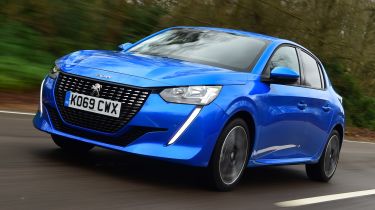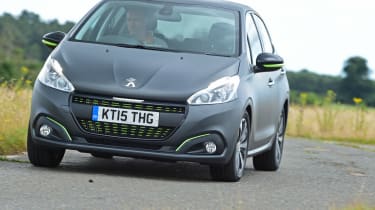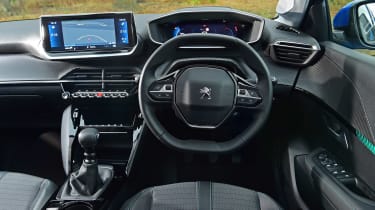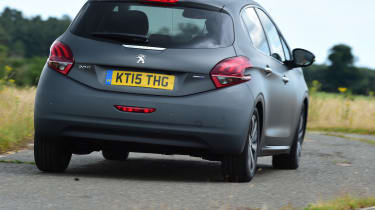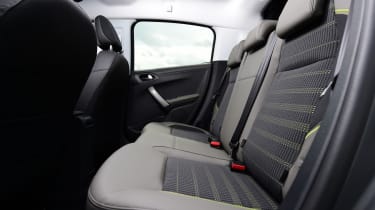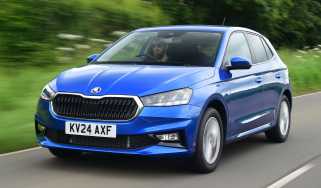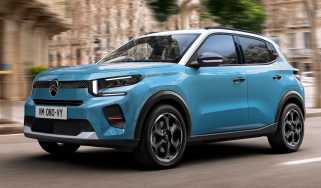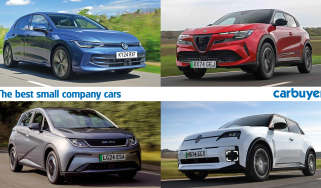Peugeot 208: old vs new
How does the stylish new Peugeot 208 compare with the old one?
The latest Peugeot 208 went on sale in 2019, taking over from its predecessor as Peugeot’s rival to the Ford Fiesta, Renault Clio and SEAT Ibiza. Superminis have universal appeal; they’re good as first cars and are suitable for small families, weekly supermarket trips and people who don’t want or need anything bigger. The 208 now has even more to offer, as it’s available as an electric car, called the Peugeot e-208, for the first time.
Its predecessor replaced the Peugeot 207 in 2012, and at the time the company was still focused on making cheap, if not particularly exciting, cars like the Peugeot 3008 MPV and Peugeot 4007 SUV. The introduction of the 208 showed the brand was starting to change and look to the future; the 208 ushered in Peugeot’s i-Cockpit digital instrument cluster, for example.
The new car is a big step forward from the last model, which was needed to take on its hi-tech and sophisticated rivals. Here’s how the two Peugeot 208 models compare:
Design
It looks a little blobby from some angles but the previous Peugeot 208 is chock full of interesting styling touches - especially after a facelift in 2015. You get notched headlights, chrome detailing, the option of brightly coloured exterior trim and claw-like LED tail-lights, so it could hold its own against its rivals. Three- or five-door models were available but, rather confusingly, Peugeot had different trim levels for each body style.
The latest 208 is only offered as a five-door (not many buyers go for three-door superminis any more) but it’s certainly one of the most striking cars in its class. LED daytime running light slashes make the car look like it has fangs, and they’re joined by LED elements in the headlights on GT-Line and GT versions. Peugeot has given the rear lights a cleaner look and connected them with a black bar. Besides e-208 badging and blue grille inserts, the electric version is identical.
Interior
Peugeot’s first 208 might’ve paved the way for the company’s current interior design, but it was a little flawed. We found the steering wheel obscured the speedo, so we had to have the wheel lower down than we’d have liked. The ride was quite firm, especially on bigger wheels, and there were a couple of chunky blind spots caused by the thick pillars. Equipment levels are pretty good, though; in later cars, all models got air conditioning, cruise control and a touchscreen with Apple CarPlay and Android Auto.
The new 208 is a bit better ergonomically and now most people should be able to see over the flat-topped steering wheel. There are beautiful piano keys on the dashboard, and a great-looking 10-inch touchscreen on most models (seven inches on low-spec cars). The design is much more interesting than the interior of the Ford Fiesta, but the infotainment system could be easier to use. Nevertheless, the interior is definitely one of the major reasons you’d buy the 208 over its rivals.
Economy and performance
If you’re looking at earlier Peugeot 208s, it’s worth remembering that their fuel efficiency figures were based on the NEDC emissions test cycle. The figures will look higher than later cars, which were measured on the new WLTP cycle, but WLTP results are more realistic and easier to achieve in the real world. According to the new test, the 82bhp and 108bhp petrol engines could return around 50mpg, while high-mileage drivers should hunt out the 99bhp diesel engine, which claims 67mpg. The diesel isn’t overly slow, either, but most drivers will be happy with the 108bhp petrol and its 9.6-second 0-62mph time.
The petrol engines remain in the new 208 but they’ve been tweaked to produce 74, 99 or 128bhp. Both the 74bhp and turbocharged 99bhp engines are said to return 53mpg, while the 128bhp engine is only offered with an automatic gearbox and fuel economy drops ever so slightly as a result. There’s still a 99bhp diesel with similar economy to before, but it’s now about half a second quicker. We’d avoid the lethargic 74bhp petrol engine; the 99bhp engine is a whole five seconds quicker from 0-62mph.
Of course, the new Peugeot 208 hatchback comes in another form - an electric e-208 version is available for the first time. It can manage up to 211 miles on a full charge, and the minimal charging costs and free road tax will offset its lofty price (compared to petrol and diesel versions). It’ll even charge to 80% in just half an hour using a public rapid charger. The 134bhp e-208 is the quickest in the range, hitting 0-62mph in a brisk 8.1 seconds.
Practicality
The Peugeot 208 hasn’t really grown much from the first to the current generation, so interior space is about the same in both cars. Rear-seat access is improved as the new car is five-door only, but the 208 isn’t the most spacious car in its class. There are even more handy storage cubbies than before, and the boot is a little bigger (311 litres vs 285), making it exactly the same size as the Ford Fiesta’s boot - regardless of whether you choose petrol or electric. We’d recommend going for a trim with parking sensors (or speccing them from the options list) because the new 208’s small rear windscreen limits visibility.
Safety
When it was tested back in 2012, the previous 208 impressed with a five-star Euro NCAP score. The safety tests get more stringent every year, so it’s a little hard to compare the new car’s four-star score to the old car’s maximum star rating. Individual percentage scores for adult and child protection are better in the new car, though, and all cars get autonomous emergency braking (AEB), speed limit recognition, lane-keeping assist and cruise control. Many of these features were optional or unavailable on the last model.
Verdict
If you’re looking for a striking supermini with plenty of tech, the new Peugeot 208 should be on your shortlist. The SEAT Ibiza and Renault Clio are both more practical and the Ford Fiesta is better to drive, but the 208 is arguably more stylish than any of them. It’s a little improved over the old 208 in every department, and we expect it to appeal to existing Peugeot customers and buyers who might never have considered one before.
Read our guides to the best small cars and superminis and the best first cars.
Recommended
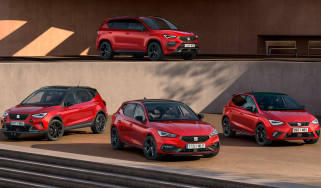
SEAT releases new Black Edition models with sportier styling
Most Popular

New Smart #5 Brabus is a 637bhp far cry from the brand’s city car past

Best car leasing deals 2025: this week’s top PCH offers
Tips & advice

Car dashboard warning lights: what does each symbol mean?

Electric car charging stations: public networks, charger types, apps and maps


